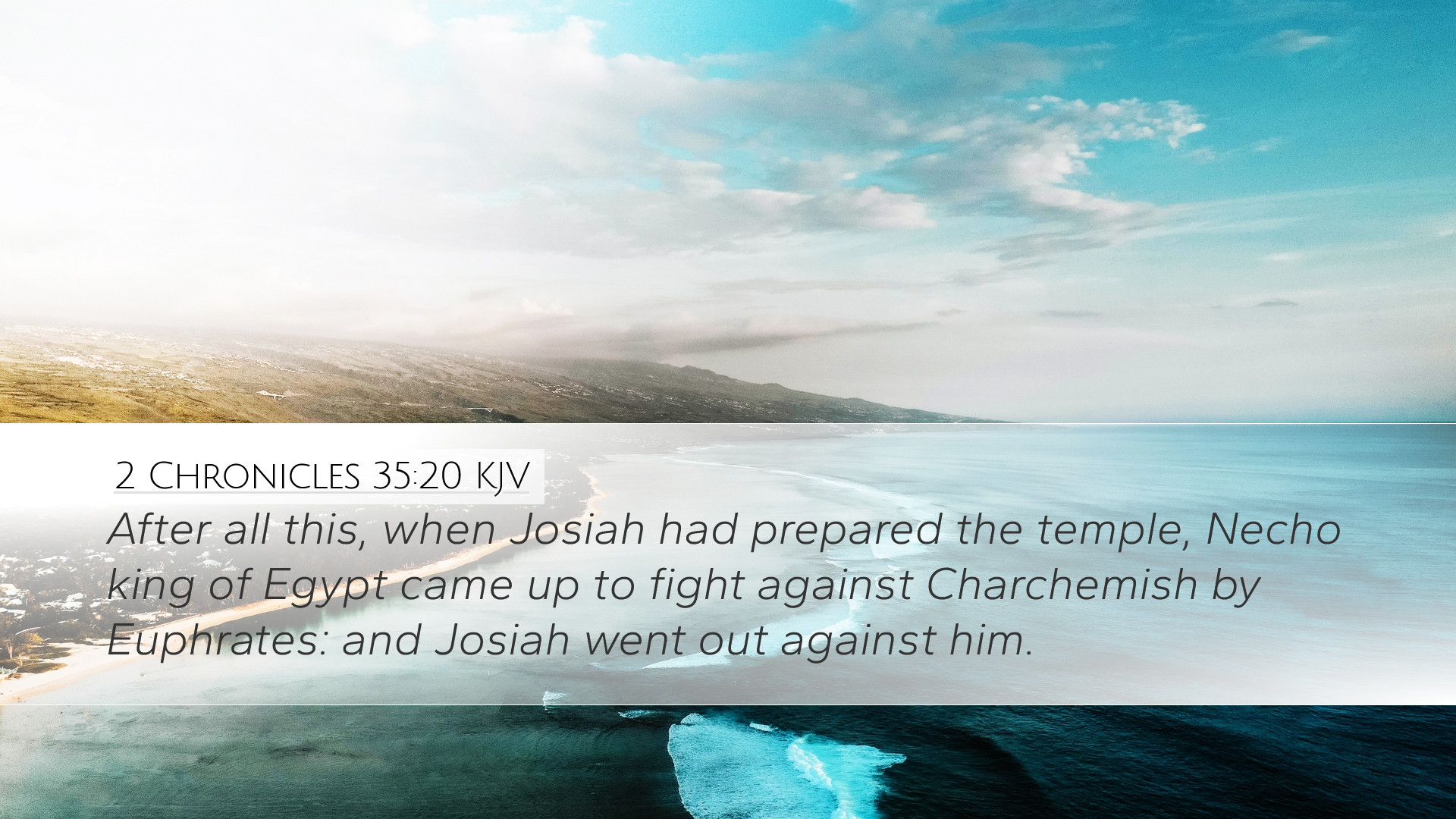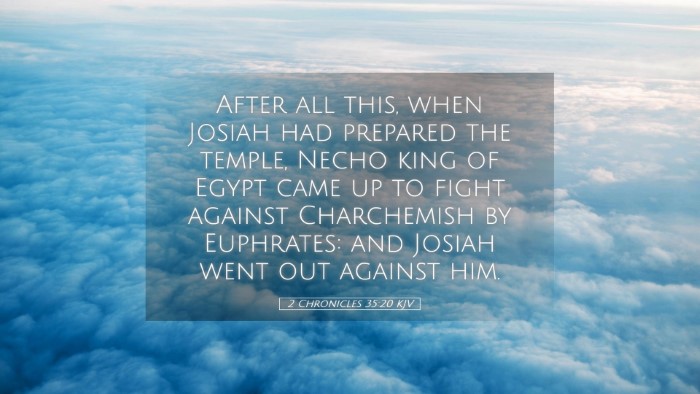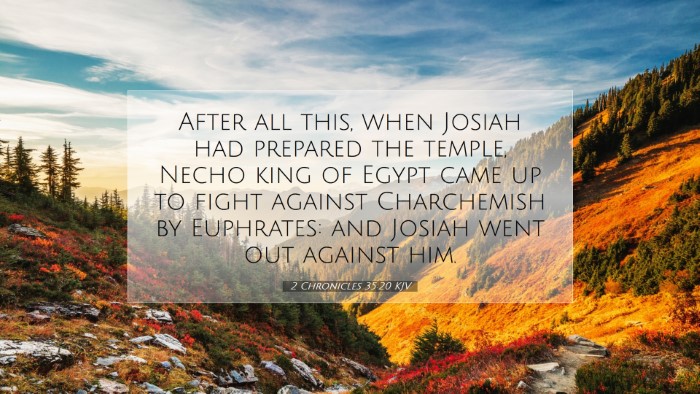Commentary on 2 Chronicles 35:20
2 Chronicles 35:20 states:
"After all this, when Josiah had prepared the temple, Necho king of Egypt came up to fight against Carchemish by Euphrates; and Josiah went out against him."
This passage stands as a critical juncture in the history of Judah and its kings, particularly focusing on King Josiah's reign. The events leading up to this encounter hold significant theological and historical implications as extracted from public domain commentaries by Matthew Henry, Albert Barnes, and Adam Clarke.
Historical Context
The backdrop of this scripture involves King Josiah, who is notable for his religious reforms and dedication to the restoration of true worship in Judah. His efforts culminated in the renewal of covenant relations with Yahweh, which was characterized by a comprehensive reform of worship practices following the discovery of the Book of the Law.
The narrative indicates that after the temple was prepared, a significant external challenge arose as Necho, the king of Egypt, advanced towards Carchemish. Understanding the historical context of this battle is vital for grasping the weight of the events described in this verse.
Insights from Matthew Henry
Matthew Henry emphasizes the spiritual state of Judah at this time, indicating that the preparation of the temple was not merely a physical restoration but a representation of spiritual renewal. Henry notes, "The temple prepared was an emblem of the people’s hearts turned back to God,” thus highlighting the connection between divine worship and national identity.
Furthermore, Henry elaborates on Josiah's unwavering faith, stating that despite the adversities posed by foreign powers like Egypt, Josiah's commitment to his nation and God was paramount. He reminds readers that Josiah’s boldness in engaging Necho was misdirected, as he failed to discern the prophetic warning that emerged from Necho's intentions.
Insights from Albert Barnes
Albert Barnes provides a concise argument concerning the political and military implications of Josiah's actions. He notes that Josiah's decision to confront Necho was a critical error driven by zeal but devoid of divine sanction. Barnes writes, "Josiah ought to have known better than to engage in a battle that was not instigated by his own governance.” He argues that this confrontation was a miscalculation that ultimately led to devastating results, including the loss of Josiah's life.
Additionally, Barnes addresses the significance of Necho's ascendancy, highlighting Egypt's role in the geopolitical landscape of the time. He reminds readers that Necho’s intention was not aimed directly at Judah but rather towards Assyrian opposition, thus providing context for Josiah's reaction. Barnes cautions that involvement in foreign entanglements without divine direction can lead to grave consequences.
Insights from Adam Clarke
Adam Clarke draws attention to the prophetic elements central to this text by connecting it to the larger narrative of God’s judgment. Clarke posits that God used foreign powers as instruments of judgment against His people when they strayed. He refers to Josiah’s preoccupation with Israelite reform, which may have blinded him to the realities posed by surrounding nations.
Clarke's analysis of Necho is particularly impactful as he emphasizes the prophetic message that Necho delivers to Josiah, warning him not to interfere, which signifies that Josiah was out of step with God’s ordained plan. Clarke concludes that the tragic demise of Josiah results from both his independent action and failure to heed godly counsel, reinforcing the theme of human disobedience in the biblical narrative.
Theological Reflections
- Divine Sovereignty: The passage illustrates the active role of God in the affairs of nations, emphasizing that He often uses various leaders and kingdoms to fulfill His purposes.
- The Importance of Discernment: Josiah's fervent zeal, while commendable, was marred by a lack of discernment. This serves as a reminder to leaders and believers to seek divine wisdom in decision-making.
- Consequences of Leadership: Josiah's actions highlight that the decisions of leaders have significant ramifications not only for themselves but also for the people they lead, as his death led to turmoil and eventual captivity for Judah.
Conclusion
2 Chronicles 35:20 serves as a poignant reminder of the interplay between human agency and divine sovereignty. The reflections provided by commentators such as Matthew Henry, Albert Barnes, and Adam Clarke contribute to a deeper understanding of the text.
Josiah’s encounter with Necho encapsulates critical lessons on leadership, the necessity of seeking divine guidance, and the ramifications of straying from God’s will. As modern-day readers—be they pastors, theologians, or scholars—engage with this passage, it offers rich insights into the complexities of faith and governance.


